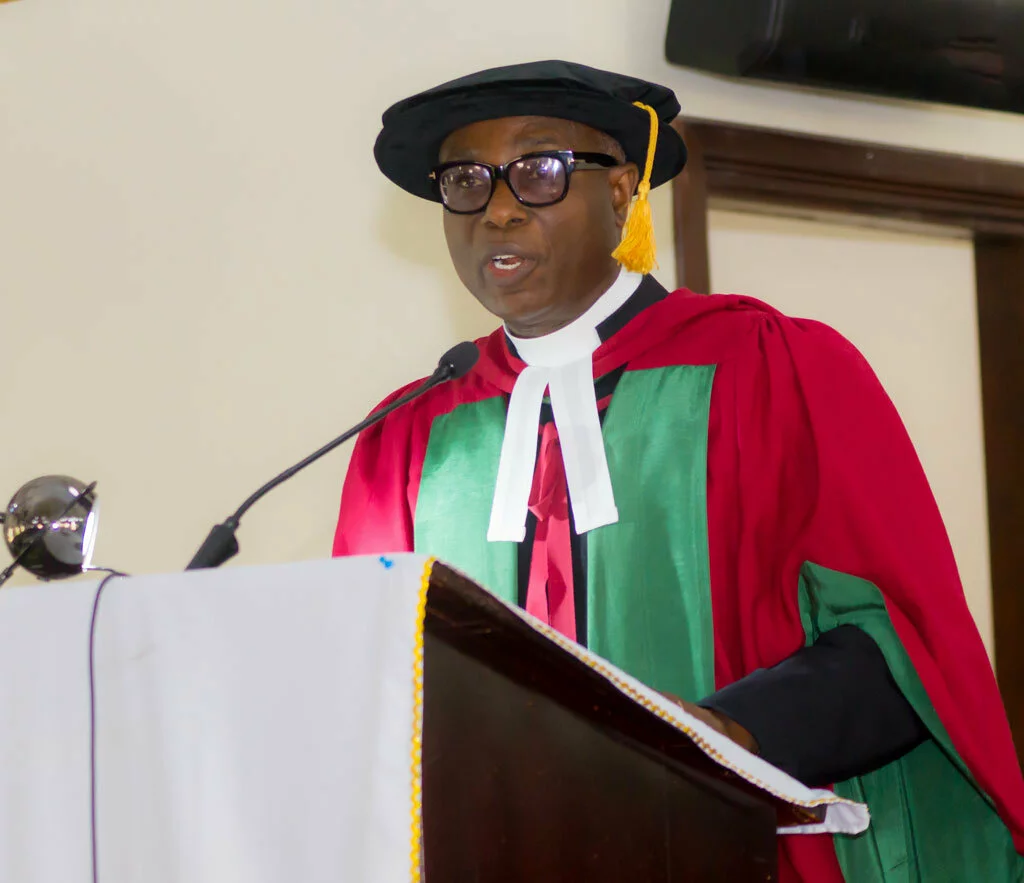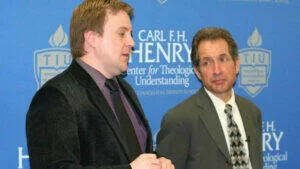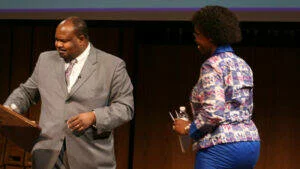In my next two posts I’d like to explore the hypothesis that there is a strong relationship between the prevalence of witchcraft beliefs and accusations on the one hand and economic prosperity and social wellbeing on the other. In other words, in African societies where people experience socio-economic uplift, they tend to fear that envious relations and competitors will attempt to bring them down, or eliminate them altogether, using witchcraft.
African Christianity and the Prosperity Gospel
This observation is not new. It is evident in the historical accounts of Christian mission history in the developing economies of sub-Saharan African countries like the then Gold Coast (Ghana since independence in 1957) in the 19th and early-20th centuries. The relationships between fears of witchcraft, attendant accusations, and material prosperity has continued. Even in 21st century Africa witchcraft is blamed for the shortfalls of prosperity preaching associated with contemporary Pentecostalism. If you preach that God rewards faithful Christianity with financial blessings, good health, and wellbeing then there must be a way to explain any failure to prosper.
The African Christian reality is that there is an underdeveloped or even non-existent theology of the cross, especially as it relates to suffering. In my judgment, aspects of prosperity theology cause Christians who faithfully tithe and positively confess faith to be disturbed and scandalized when they encounter persecution, sickness, or deaths. One of my female seminary students has complained bitterly about being treated like a “leper” since she lost her husband. Now a young widow, she tells me, “When my husband was alive he used to contribute financially to the church’s programs, and now that he is gone, nobody in that church even asks of me.” She has decided to leave! The point is that prosperity preaching fails to take account of those who are struggling in life, while it is a message that works perfectly for those on their way up.
Witchcraft lends itself as an easy explanation even in Christian discourse for failing businesses, barrenness, ill health, and every kind of failure in life—especially for those who evaluate faithful Christianity in terms of material wealth and physical health. Noel Smith served as a missionary of the Basel Mission of the then Gold Coast in the mid-20th century. He wrote in 1966 that, “the incidence of witchcraft [had] increased in Ghana during the last century and that this increase [had] coincided with the drastic social changes of the period” The Presbyterian Church of Ghana: 1835-1960, p. 80.. The reference to “the last century” means witchcraft beliefs were already prevalent when the Basel and other Protestant Missions began work in the country from about 1828. Smith pointed out that witchcraft operated as an explanation of the singularity of misfortune. Such misfortunes, he explained, were believed to be the result of envy and hatred within the social group. A person lies unaccountably ill or is suddenly killed by accident and such events are attributed to witchcraft that has been initiated by bad feeling (Ibid.). In other words witchcraft accusations may be related to peoples’ socio-economic contexts and circumstances. “If someone harbors a grievance,” Smith writes, “then another is in danger of attack by witchcraft; if one person achieves an unusual success he or she becomes suspicious of the witchcraft of his envious fellows” (Ibid.).
It is instructive that, in the middle of the 20th century, Smith saw the direct connection between a society “suddenly and increasingly affected by a Western economy” and witchcraft because the new social principles inherent in material progress and prosperity produced new animosities. Quoting the anthropologist Max Gluckman, he describes how “the system of witchcraft beliefs, originally tied to certain social relations, can be adapted to new situations of conflict—competition for jobs in towns, to the rising standard of living, made possible by new goods, which breaches the previous egalitarianism”Ibid, p. 81.. In Ghana after 1850, Smith explains, it became clear that the increase in the incidence of witchcraft was a concomitant of the radical social changes in the country: the new factors of a money economy, a cocoa-growing revolution, and Western type education. In the early years formal education was seen chiefly as a means to wealth and advancement in the world of European activities. Educated senior public servants migrated to the cities and lived among Europeans, thus erecting artificial barriers between themselves and the rural poor. In response, it is believed that the neglected rural poor, without physical access to their kith and kin in the cities, spiritually pursued the upwardly mobile—that is, performed or solicited witchcraft in the night to punish them for neglect! Those who benefited from formal education became “objects of jealousy and spite” and those who failed at school attributed such failure to “envious witches in the family” who sought to curtail their progress spiritually (Ibid.). The development of a money economy and the desire to make money, Smith therefore concludes, often fostered the conviction that the lack of prosperity is caused by the machinations of witches (Ibid.).
The Supernatural Dimension
In the 19th century witchcraft accusations may have been heightened by economic growth and material success, but this cannot be seen merely as a sociological issue. The witchcraft accusations brought in their wake new traditional religious shrines, medicine cults, and indigenous Christian prophetic functionaries believed to possess the supernatural power to deal with witchcraft as a supernatural evil. There emerged a satirical portrait of hypocritical Christianity: the educated church elder who goes to church on Sunday but keeps an amulet at home to protect his/her status and property from envious witches. The attitude has often been labeled “a little bit of Jesus; a little bit of juju Christianity.” One medicine cult was instructively called hwemeso, literally meaning: “watch over me.” The custodians of these cults supplied various charms and talismans that people kept in their homes or on their bodies to protect them against witchcraft.
The church denounced such sacred objects as unchristian and satanic. Those looking for alternatives consulted the Spiritual church prophets who virtually without exception functioned as witch-doctoring adepts supplying holy water, oils, and other sacramental substances that served as “Christian” equivalents of traditional charms and amulets. As with traditional priests and diviners, the clients of these Spiritual or independent church prophets included wealthy cocoa farmers, traders, politicians, educationists, and other people of wealth and means who feared that envious relatives could bring them down through the powers of witchcraft. The substances obtained from these religious functionaries—whether Christian or traditional—served to both protect people against witchcraft and spoiled the plans of those perpetrating the evils of witchcraft against potential victims.
The Pentecostal Context and The Challenge for the Church
Contemporary Pentecostalism with its endorsement of material things as a sign of God’s blessing has become the new religious context in which witchcraft accusations thrive. I am among a group of theologians who defined the prosperity gospel “as the teaching that believers have a right to the blessings of wealth and that they can obtain these blessings through positive confessions of faith and the ‘sowing of seeds’ through faithful payments of tithes and offerings”Lausanne Theology Working Group, Africa Chapter, October 2008 and September 2009 meeting at the Akrofi-Christaller Institute of Theology, Mission and Culture. Overwhelmingly, those who have benefitted from this materialistic gospel are those who preach this gospel. Contemporary Pentecostal pastors flaunt their big and luxurious automobiles and mansions, expensive jewelry, and designer suits with their overdressed wives in tow as signs that the prosperity message works.
It is not all negative. There are some who have also prospered materially since they came to Christ with their new lifestyles helping to reduce waste and to use resources more responsibly. To that point, faithful Christian living can contribute to prosperity, and I appreciate the strong empowerment and motivational messages that encourage young people to work hard and aspire to become millionaires. And there is no point in disputing that here are credible testimonies from people who have applied the principles of success taught in these churches and who claim it has worked for them.
Where church members have been shortchanged is when things do not go as planned. In healing camps and prayer centers manned by prophets claiming the power to diagnose the sources of problems, it is common point to witchcraft in families as the cause of their material or physical suffering. In African prayer meetings today (as I have previously described) the power of the blood of Christ is freely invoked to curse family members believed to be responsible for their lack of progress in life.
The question that confronts us is how to deliver a gospel message that does not explain supernatural evil away as nonsensical while still preaching the reality that in our walk with God He does promise to bless but that the Christian also goes through the valley of the shadow of death. Suffering is not the lot only of unbelievers. The difference is that even in the valley of the shadow of death God’s presence remains with his people and he delivers them his own way. Sometimes problems are solved and fortunes restored but at other times we receive grace to live with those disabling situations too, knowing that Christ has power not just over sin but over witchcraft too.








Don’t be deceived by different testimonies online that is most likely wrong. I have made use of several LOVE SPELL CASTER options that got me disappointed at the end of the day but I must confess that Dr Adoda is genius I eventually found out here on http://dradodalovetemple.com It’s better you devise your time to find the valid professionas that can help you restore your Broken Marriage/Relationship Ex back rather than falling victim of other amateur spell caster that cannot get the job done. http://dradodalovetemple.com is the most reliable and authentic spell caster expert you can work with to bring back lost lover .my ex-lover called me after my contact with Dr Adoda and he helped me get back on my feet and I’m very grateful for that.
I want to specially thank Dr. Adewale for bringing back my lover. In 2020, my husband left home and never returned back to me and my 3 kids. I started going crazy when I heard that he travelled out of Texas to be with his new found lover, leaving me and my kids to suffer. I then opened to a friend Jasmine who introduced and linked me with Dr. Adewale. I contacted him via email in November 2023 and he instructed me on what to do. Sent some herbs across to me through DHL and I started to see positive results in my life. To my greatest surprise, my husband called me in December 2023 to apologize for all his transgressions and now, we are happy together and he’s back home. All thanks goes to Dr. Adewale. You can contact Dr. Adewale today on this Email address: [email protected] or WhatsApp +4915218662254
I have been suffering from Herpes for the past 1 years and 8 months, and ever since then I have been taking series of treatment but there was no improvement until I came across testimonies of Dr. Silver on how he has been curing different people from different diseases all over the world, then I contacted him as well. After our conversation he sent me the medicine which I took according .to his instructions. When I was done taking the herbal medicine I went for a medical checkup and to my greatest surprise I was cured from Herpes. My heart is so filled with joy. If you are suffering from Herpes or any other disease you can contact Dr. Silver today on this Email address: [email protected] or Whatsapp +2348120513902
Hi Guys I’m so excited to share this testimony on how i got my Fiancee back,
i was heartbroken when my fiancee told me he is no longer interested in marrying me because he was having an affair with the other woman where he work. I cried and sobbed every day, until it got so bad that I reached out to the Internet for help, that was when i read a review about the great work of Dr happy, then i contacted him for help to get my lover back, he helped me cast a powerful (reconciliation love spell) and to my greatest surprise after 24 hours of doing the love spell my Fiancee came back on his knees begging me to forgive him.you can contact him..
WHATSAPP; +2347068494711 Or email him at [email protected]
His Blogs site… https://happylovespell2.blogspot.com.ng/
His Web site…http://happylovespel.webs.com/
His facebook page https://web.facebook.com/profile.php?id=61552907003445
Hi Guys I’m so excited to share this testimony on how i got my Fiancee back,
i was heartbroken when my fiancee told me he is no longer interested in marrying me because he was having an affair with the other woman where he work. I cried and sobbed every day, until it got so bad that I reached out to the Internet for help, that was when i read a review about the great work of Dr happy, then i contacted him for help to get my lover back, he helped me cast a powerful (reconciliation love spell) and to my greatest surprise after 24 hours of doing the love spell my Fiancee came back on his knees begging me to forgive him.you can contact him..
WHATSAPP; +2347068494711 Or email him at [email protected]
His Blogs site… https://happylovespell2.blogspot.com.ng/
His Web site…http://happylovespel.webs.com/
His facebook page https://web.facebook.com/profile.php?id=61552907003445
Hi Guys I’m so excited to share this testimony on how i got my Fiancee back,
i was heartbroken when my fiancee told me he is no longer interested in marrying me because he was having an affair with the other woman where he work. I cried and sobbed every day, until it got so bad that I reached out to the Internet for help, that was when i read a review about the great work of Dr happy, then i contacted him for help to get my lover back, he helped me cast a powerful (reconciliation love spell) and to my greatest surprise after 24 hours of doing the love spell my Fiancee came back on his knees begging me to forgive him.you can contact him..
WHATSAPP; +2347068494711 Or email him at [email protected]
His Blogs site… https://happylovespell2.blogspot.com.ng/
His Web site…http://happylovespel.webs.com/
His facebook page https://web.facebook.com/profile.php?id=61552907003445
Hi Guys I’m so excited to share this testimony on how i got my Fiancee back,
i was heartbroken when my fiancee told me he is no longer interested in marrying me because he was having an affair with the other woman where he work. I cried and sobbed every day, until it got so bad that I reached out to the Internet for help, that was when i read a review about the great work of Dr happy, then i contacted him for help to get my lover back, he helped me cast a powerful (reconciliation love spell) and to my greatest surprise after 24 hours of doing the love spell my Fiancee came back on his knees begging me to forgive him.you can contact him..
WHATSAPP; +2347068494711 Or email him at [email protected]
His Blogs site… https://happylovespell2.blogspot.com.ng/
His Web site…http://happylovespel.webs.com/
His facebook page https://web.facebook.com/profile.php?id=61552907003445
Hi Guys I’m so excited to share this testimony on how i got my Fiancee back,
i was heartbroken when my fiancee told me he is no longer interested in marrying me because he was having an affair with the other woman where he work. I cried and sobbed every day, until it got so bad that I reached out to the Internet for help, that was when i read a review about the great work of Dr happy, then i contacted him for help to get my lover back, he helped me cast a powerful (reconciliation love spell) and to my greatest surprise after 24 hours of doing the love spell my Fiancee came back on his knees begging me to forgive him.you can contact him..
WHATSAPP; +2347068494711 Or email him at [email protected]
His Blogs site… https://happylovespell2.blogspot.com.ng/
His Web site…http://happylovespel.webs.com/
His facebook page https://web.facebook.com/profile.php?id=61552907003445
Hi Guys I’m so excited to share this testimony on how i got my Fiancee back,
i was heartbroken when my fiancee told me he is no longer interested in marrying me because he was having an affair with the other woman where he work. I cried and sobbed every day, until it got so bad that I reached out to the Internet for help, that was when i read a review about the great work of Dr happy, then i contacted him for help to get my lover back, he helped me cast a powerful (reconciliation love spell) and to my greatest surprise after 24 hours of doing the love spell my Fiancee came back on his knees begging me to forgive him.you can contact him..
WHATSAPP; +2347068494711 Or email him at [email protected]
His Blogs site… https://happylovespell2.blogspot.com.ng/
His Web site…http://happylovespel.webs.com/
His facebook page https://web.facebook.com/profile.php?id=61552907003445
Hi Guys I’m so excited to share this testimony on how i got my Fiancee back,
i was heartbroken when my fiancee told me he is no longer interested in marrying me because he was having an affair with the other woman where he work. I cried and sobbed every day, until it got so bad that I reached out to the Internet for help, that was when i read a review about the great work of Dr happy, then i contacted him for help to get my lover back, he helped me cast a powerful (reconciliation love spell) and to my greatest surprise after 24 hours of doing the love spell my Fiancee came back on his knees begging me to forgive him.you can contact him..
WHATSAPP; +2347068494711 Or email him at [email protected]
His Blogs site… https://happylovespell2.blogspot.com.ng/
His Web site…http://happylovespel.webs.com/
His facebook page https://web.facebook.com/profile.php?id=61552907003445
Hi Guys I’m so excited to share this testimony on how i got my Fiancee back,
i was heartbroken when my fiancee told me he is no longer interested in marrying me because he was having an affair with the other woman where he work. I cried and sobbed every day, until it got so bad that I reached out to the Internet for help, that was when i read a review about the great work of Dr happy, then i contacted him for help to get my lover back, he helped me cast a powerful (reconciliation love spell) and to my greatest surprise after 24 hours of doing the love spell my Fiancee came back on his knees begging me to forgive him.you can contact him..
WHATSAPP; +2347068494711 Or email him at [email protected]
His Blogs site… https://happylovespell2.blogspot.com.ng/
His Web site…http://happylovespel.webs.com/
His facebook page https://web.facebook.com/profile.php?id=61552907003445
You can save your relationship if you are willing to do so” All thanks to Dr.Excellent spell caster for helping me to bring back my husband. I was heart broken when my husband left me and moved to California to be with another woman. I felt my life was over and my kids thought they would never see their father again. I tried to be strong just for the kids but I could not control the pains that tormented my heart, my heart was filled with sorrows and pains because I was really in love with my husband. I have tried many options but he did not come back, until i met a friend that directed me to Dr.Excellent a spell caster, who helped me to bring back my husband after 11hours. Me and my husband are living happily together again, This man is powerful, I will advice anyone that have relationship problem or marriage problem, financial Difficulty, court case problem to contact Dr Excellent now for help, Here his contact.
WhatsApp him at: +2348084273514 “Or email him at: [email protected] ,
His website:https://drexcellentspellcaster.godaddysites.com
You can save your relationship if you are willing to do so” All thanks to Dr.Excellent spell caster for helping me to bring back my husband. I was heart broken when my husband left me and moved to California to be with another woman. I felt my life was over and my kids thought they would never see their father again. I tried to be strong just for the kids but I could not control the pains that tormented my heart, my heart was filled with sorrows and pains because I was really in love with my husband. I have tried many options but he did not come back, until i met a friend that directed me to Dr.Excellent a spell caster, who helped me to bring back my husband after 11hours. Me and my husband are living happily together again, This man is powerful, I will advice anyone that have relationship problem or marriage problem, financial Difficulty, court case problem to contact Dr Excellent now for help, Here his contact.
WhatsApp him at: +2348084273514 “Or email him at: [email protected] ,
His website:https://drexcellentspellcaster.godaddysites.com